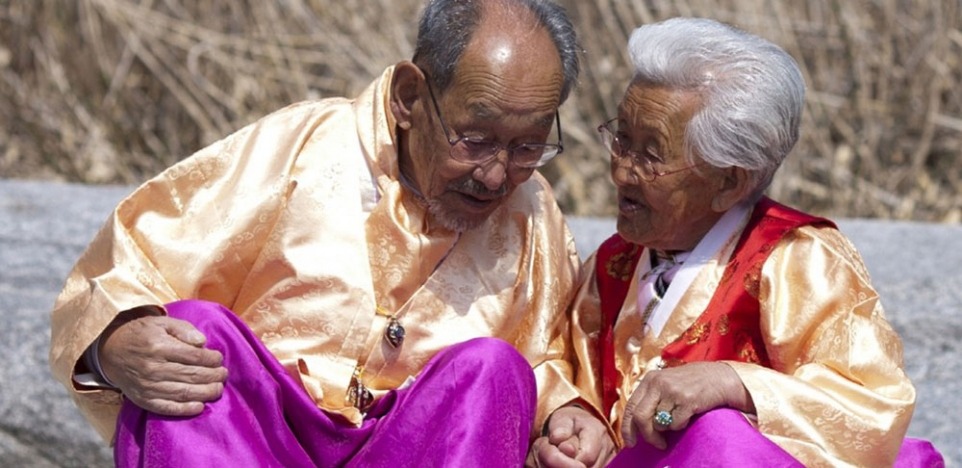"Love doesn't make the world go round, love is what makes the ride worthwhile."
— Franklin P. Jones
This emotionally moving documentary depicts the intimate relationship between 98-year-old Byoungman Jo Jo and 89-year-old Gyeyeul Kang who have been married for 76 years. They live in a rural, mountain village in Korea. One of the major challenges of marriage is constantly renewing the sources of love and devoting yourself to the soulful unfolding of your partner. These two are experts at this.
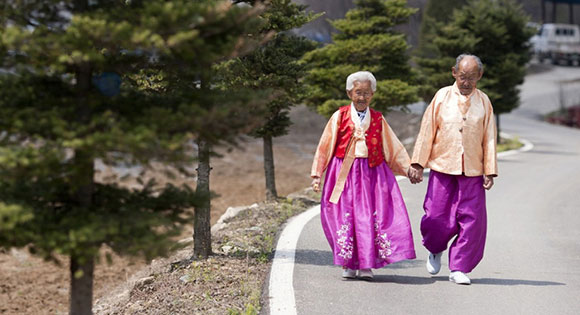
My Love, Don't Cross That River is directed by Moyoung Jin, who followed this elderly couple for 15 months. The film was a box-office hit in its native Korea and has become the biggest independent film of all time there. In an interview in alkmagazine.com, the director states what he was trying to do with this portrait of a marriage that seems so fresh and vibrant:
"We should think about marriage more seriously. Marriage may seem like just two people living together. However, when you look closely, if you calculate how much time you would spend with the partner in your whole life from birth to death, you and your spouse spend a significant amount of time together. So it's not just spending time together, but living a LIFE together. . . . That's why we should think and contemplate more about love and marriage, and I hope this couple will help you with that."
Jo and Kang met and married when he was 19 and she was 14. They eased into their physical relationship slowly waiting a long time until their first embrace. Now they revere touching one another and find great pleasure in it. They hold hands as they walk together and as they fall asleep.
"When your beloved delights you
respond with affection —
a smile, a hug, a touch of the hand
gently on bare skin."— William Martin in The Couple's Tao Te Ching
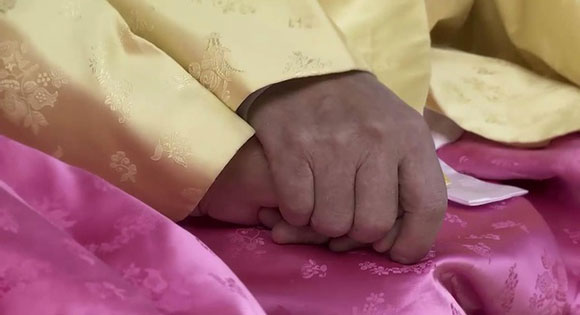
Although their bodies are stiff and hobbled by age, Kang and Jo are not too old to enjoy themselves in play. In fall, they throw leaves at one another; in winter, they toss snowballs; and in summer, they splash each other with water from the stream.
"Play with each other as do children.
Laugh and sing and skip.
Tumble in each other's arms
and squeal with delight . . .
Simplify your play . . .
You only need each other."— William Martin in The Couple's Tao Te Ching
The emotional connection between this husband and wife is enchanting as we watch them doing chores: raking leaves, taking wood to the fireplace, shoveling snow, and taking care of their two beloved dogs. In these repetitive tasks, they forge an even closer intimacy.
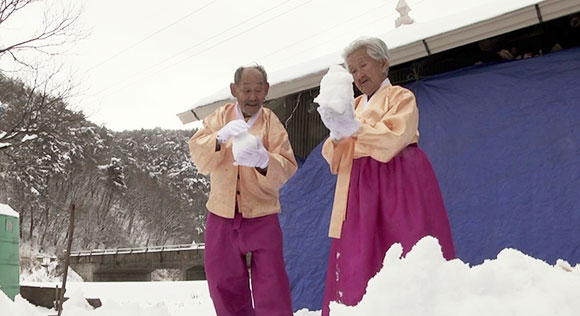
We are charmed when she tells her husband how much she enjoys cooking food that he likes or asks him to sing her a song while she uses the outside toilet. They wear matching traditional Korean hanbok as they walk into town or the bus together. When he is too weak to wash himself, she bathes his body in a tub.
"Remember the many things that bring balance
to your life together.
Take walks.
Share simple intimate meals.
And wash each other's hair
in the bath by candlelight.
These will keep your perspective clear."— William Martin in The Couple's Tao Te Ching
The relationship between these two is not perfect. Jo's anger flares when he cannot hang a heavy mirror. The couple have raised six children who visit them sporadically. On their mother's birthday, they get in a heated verbal battle, revealing familial wounds and conflicts. Although these troubles loom large at the moment, they slowly pass by and are let go by all.
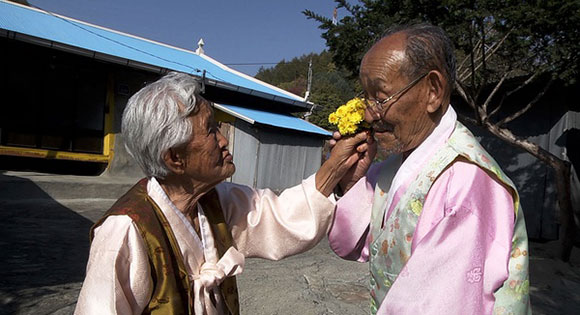
"Disagreement is natural,
conflict is part of human life.
But your relationship is not a war.
You do not have to win.
What you have to do is learn,
about your beloved
and about yourself.
This is the primary purpose of conflict."— William Martin in The Couple's Tao Te Ching
The first half of this documentary explores the heart-felt intimacies which tie this couple together while the heart-wrenching closing section deals with Jo's increasing illness and Kang's care of him as he approaches death.
Over the years they had 12 children and in one of the most poignant scenes, Kang burns the long johns she has recently bought for six of them who died while still very young. She talks about how sad it makes her to realize that when they were with her, she did not have the money to buy them these clothes. Now she wants Jo to give the long johns to the children in the afterlife. She explains that clothes are burned after a death so that the deceased will have them to wear in the other world.
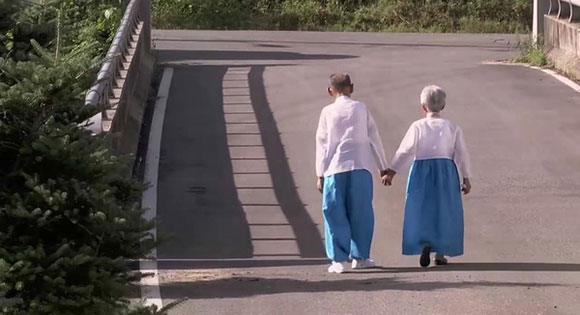
"When you promise each other
to be there 'in sickness and in health'
you cooperate with the energy of love
which uses all circumstances
for its own good purposes.
Don't be discouraged by the trials you now face.
Burn them in the furnace of your heart
and turn them into life's own energy."— William Martin in The Couple's Tao Te Ching
My Love, Don't Cross the River is one of the Most Spiritually Literate Films of 2016 with its special celebration of a conjugal love that is simple, playful, ritualized, sensitive, sensuous, caring, and soulful. Moyoung Jin has made a film that stirs the heart and reveals marriage to be a sacred adventure that can be nurtured and turned into something beautiful and profound.
"No matter what happens,
trust the power of your love.
All will be well."— William Martin in The Couple's Tao Te Ching
